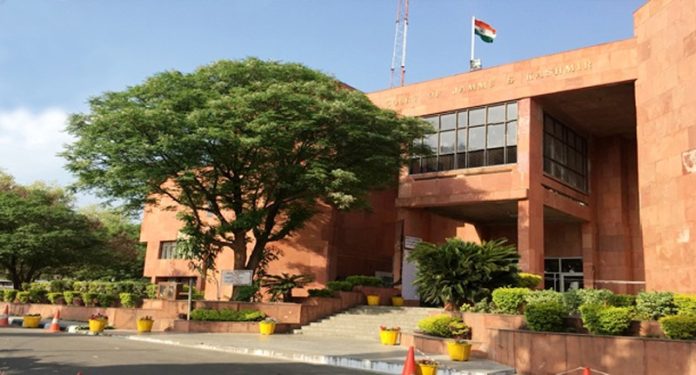Excelsior Correspondent
JAMMU, Mar 1: High Court of Jammu & Kashmir and Ladakh has directed Government of Union Territory to constitute one or more Tribunals as mandated under Wakaf Act.
The petitioners, who are in occupation of Waqf properties as licensees have raised a dispute with regard to an arbitrary, irrational and exorbitant enhancement of monthly rent. The main argument of counsel appearing for the petitioners was that the Waqf Board being an instrumentality of the State is expected to act fairly and in public interest. The Waqf Board increased the rentals of the properties under occupation of the petitioners in ex-parte and without providing them an opportunity of being heard.
While deciding bunch of petitions, Justice Sanjeev Kumar observed, “from the careful reading of Sub-Section (1) of Section 83 of the Act, it clearly comes out that each State Government which would include Union Territory as well is put under an obligation to constitute one or more Tribunals, as it may think fit, by issuing notification in the Official Gazette”.
The word “shall” used in respect of constitution of Tribunal or Tribunals is mandatory in nature. It further comes out that the Tribunal/Tribunals so constituted by the Government of State or Union Territory shall have jurisdiction to determine any dispute, question or other matter relating to Waqf property, eviction of a tenant or determination of rights and obligations in respect of such property, High Court said.
“Obviously, the dispute raised in these petitions falls within the determination of Tribunal. As is apparent from a reading of Section 85 of the Act, no Civil Court, Revenue Court and any other authority shall have jurisdiction to entertain any suit or other legal proceeding in respect of any dispute, question or other matter relating to any Waqf property as also the matter which is required by or under the Act to be determined by the Tribunal”, High Court said.
“In view of the clear legal position emerging from a reading of Sections 83 and 85 of the Act, this court has no option but to agree with the counsel appearing for the petitioners that in the event these writ petitions are not entertained, the petitioners would be rendered remediless”, Justice Sanjeev said, adding “having regard to the predicament faced by the petitioners or may be faced by similarly situated persons in future, High Court deem it appropriate to remind the Government of the Union Territory of its statutory duty enjoined on it under Section 83 of the Act and to take requisite steps for constitution of one or more Tribunals, as it may think fit, so that persons aggrieved are not rendered remediless”.
Till the Government constitutes Tribunal/Tribunals in terms of Section 83 of the Act, there shall be status quo with regard to the subject matter of these writ petitions, the High Court added.
Trending Now
E-Paper


